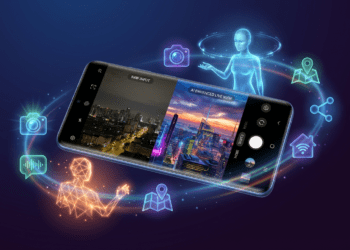The AI agent revolution is here, and it’s not just hype. In a recent head-to-head video, two of the most advanced autonomous AI agents—OpenAI’s ChatGPT Agent and Abacus.AI’s DeepAgent—were put through their paces. The results? Both are jaw-dropping, but the differences are real, and they matter. If you’re deciding which agent to trust with your next big project, or just want to see how far AI has come, this deep dive is for you.
What Can These Agents Actually Do?
Let’s start with the basics. Both ChatGPT Agent and DeepAgent are not your average chatbots. They’re full-fledged digital workers, capable of:
- Browsing the web and extracting up-to-date information
- Clicking buttons and navigating complex web interfaces
- Running code in real time
- Filling out forms and automating repetitive tasks
- Generating slide decks with charts, text, and images
- Spinning up full-stack web apps from scratch
This isn’t theoretical. In the video, both agents were tasked with real-world challenges—building slide decks, coding apps, and more. The results were impressive across the board, but the devil is in the details.
Price & Access: The First Fork in the Road
Here’s where things get interesting. ChatGPT Agent is currently locked behind a steep USD $200/month “Pro” paywall, with a more affordable “Plus” tier promised but not yet available. For many, that’s a non-starter.
DeepAgent, on the other hand, is already available for about $20/month, making it accessible to solo founders, indie hackers, and small teams. That’s a 10x price difference—hard to ignore, especially if you’re just experimenting or need to scale across a team.
PowerPoint Showdown: DeepAgent’s Visual Edge
One of the most telling moments in the video was the PowerPoint generation challenge. Both agents were asked to create a slide deck from scratch. Here’s what happened:
- ChatGPT Agent produced a functional deck, but the slides were misaligned, with inconsistent spacing and typography. The content was there, but the polish was missing.
- DeepAgent delivered a deck with cleaner typography, tighter spacing, and a genuinely eye-catching graph. The difference was immediately obvious—DeepAgent’s slides looked like they were made by a designer, not a bot.
If you care about first impressions, client presentations, or just want your slides to look sharp without manual tweaking, DeepAgent is the clear winner here. You can see examples of DeepAgent’s output on their official site.
Coding Challenge: From ZIP Files to Instant Apps
Next up: the coding challenge. Both agents were asked to build a simple “Task Flow Pro” web app.
- ChatGPT Agent generated a ZIP file with all the code, plus step-by-step terminal instructions for setup. This is great if you’re a developer who likes to tinker, but it’s a speed bump for anyone who just wants to see the app running.
- DeepAgent went further, spinning up a fully running web app that could be previewed instantly in the browser. No terminal, no ZIP files, no fuss.
For “vibe coders”—people who want to prototype, iterate, and share without getting lost in the weeds—DeepAgent’s approach is a game-changer. It’s the difference between “here’s the ingredients and a recipe” and “here’s the finished meal, ready to taste.”

Human-in-the-Loop: How Much Guidance Do They Need?
Autonomous agents are powerful, but they’re not mind readers. Both ChatGPT Agent and DeepAgent pause to ask clarifying questions when they hit ambiguity. But there’s a subtle difference:
- ChatGPT Agent tends to ask more follow-up questions, seeking extra confirmation before proceeding.
- DeepAgent asks fewer questions, then powers ahead with the task.
This means DeepAgent often gets you to the finish line faster, with less back-and-forth. If you like to stay in the driver’s seat and tweak every detail, ChatGPT Agent’s approach might suit you. But if you want to delegate and move on, DeepAgent’s “just do it” style is refreshing.
The Bottom Line: Which Agent Should You Choose?
So, which agent comes out on top? The answer depends on your needs, your budget, and your workflow.
- If you crave polished visuals, lower pricing, and rapid prototyping with minimal terminal work, DeepAgent currently holds the edge. It’s accessible, fast, and delivers results that look good out of the box.
- If you already live inside ChatGPT, have the Pro plan, and prefer deeper control over stack choices, ChatGPT Agent is still a heavyweight. Its integration with the broader OpenAI ecosystem and developer-centric features make it a strong choice for power users.
The Future: What’s Next for AI Agents?
Both agents are evolving rapidly. OpenAI has promised a lower-priced Plus tier for ChatGPT Agent, which could change the calculus for many users. Meanwhile, Abacus.AI is iterating quickly, adding new features and integrations to DeepAgent.
What’s clear is that autonomous AI agents are no longer science fiction. They’re here, they’re powerful, and they’re getting better every week. Whether you’re building apps, automating workflows, or just want to see what’s possible, now is the time to experiment.
For more hands-on comparisons, check out the original video review (link placeholder—replace with actual video link if available), or dive deeper into each platform’s documentation:
Final Thoughts
The AI agent landscape is moving fast. Today, DeepAgent offers a compelling mix of price, polish, and ease of use, especially for those who want to move quickly and look good doing it. ChatGPT Agent remains a powerhouse for those who need maximum flexibility and are already invested in the OpenAI ecosystem.
No matter which you choose, one thing is certain: the era of AI agents is just beginning, and the best is yet to come.









